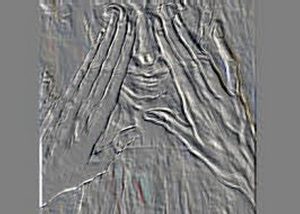John 9.39

The term Pharisee has become associated with a particular vocabulary. Legalism, intransigent, accusative, unbending, bitter, unforgiving are all words that many would recognize as applying to a Pharisee. They also exhibited spiritual blindness and self -righteousness and these traits prevent them from understanding spiritual truth even when presented with first hand evidence. This is despite deep scriptural knowledge and religious conviction. Jesus described the Pharisees as those who could see becoming blind. How then can a seeker after God guard against becoming as the Pharisees or be saved from those attitudes once they are adopted?
Jonathan Edwards a 18th Century revivalist wrote, “One under the influence of spiritual pride is more apt to instruct others, than to enquire for himself, and naturally puts on airs of a master. Whereas one that is full of humility, naturally has on the air of a disciple.” (Thoughts on the New England Revival, Vol 1)
It is unfair to tarnish all Pharisees with the same brush and beyond redemption. Nicodemus was a genuine enquirer and unafraid to defend Jesus. Saul who became Paul was transformed from the man who describes himself as the greatest of sinners, to the greatest New Testament evangelist and church planter.
The Pharisees in John 9 displayed attitudes that every mission minded Christian should be prepared to encounter and to be self- aware of lest they also find themselves reflecting them should they look in the mirror. James warned Christians to be, ‘doers of the word, and not hearers only, deceiving yourselves. For if anyone is a hearer of the word and not a doer, he is like a man who looks intently at his natural face in the mirror. For he looks at himself and goes away and at once forgets what he looks like.’ James 1.22-24
The Pharisees in John 9 were suspicious of Jesus and looking for ways to disprove and discredit Jesus’ act of mercy in healing the blind man. v 9.15 They were looking for reasons to accuse and confirm their superiority. This man is not from God, for he does not keep the Sabbath’ v9.16 They leapt to conclusions and made preemptive decisions. The parents of the healed man were afraid of the Pharisees because, ‘the Jewish leaders, who already had decided that anyone who acknowledged that Jesus was the Messiah would be put out of the synagogue,’ v 9.22 There were some who were more open minded, ‘others asked, “How can a sinner perform such signs”?’ v16b However, they were either ignored or overridden. When faced with rational arguments they became intimidatory, vv22&24 abusive v28 and pronounced false reasons for superiority. v28 They finally took vindictive action in excommunicating the healed man with the intention of preventing others from becoming a disciple of Jesus.
In Saul of Tarsus we see an example of a proud zealous Pharisee being physically blinded to overcome his spiritual blindness. (Acts 9.3-9) Having been humbled, by the work of God within him, the Spirit continued to create a humble, faithful and highly loving example for ourselves.
If the Pharisees teach us that spiritual pride is a real danger, how can we guard against it?
Let Your Love Come Down – Noel and Tricia Richards
